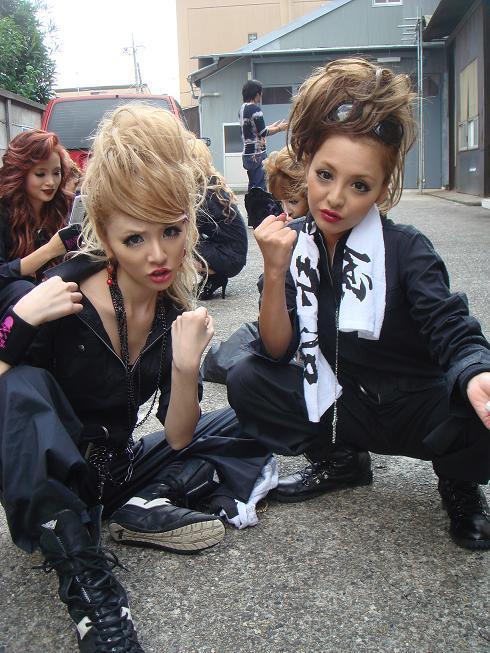
It’s books like this one that make me wish I could read Japanese fluently. But the English translation of Yakuza Moon does a great job of conveying that same spirituality and connection to nature that the Japanese language does so well, making it a pleasurable read regardless.
Yakuza Moon is the true story of Shoko Tendo, the daughter of a Yakuza gangster. The aspect of her story, that she is abused, is crucial to the path that she takes in this book. And what a path it is. Not only does she endure abuse from her father but from bullies at school and the men she allows into her life.
So from an early age, not surprisingly, she is drawn into a sordid world by her older sister, a sub-culture known as “yanki.” The phonetic similarity to “yankee” is no coincidence as members of this faction have appeared in sometimes vintage American styles but also with a fusion of Japanese fashion sense. There is an obvious parallel to American biker culture here, and I’m not referring to the trendy, weekend warrior types. I’m talking about biker gangs like the Hell’s Angels, but with a lot more style.



For Shoko, it’s obvious that this lifestyle afforded her an escape from her home life in more ways than one. But true escape would take a lot longer as she repeatedly finds herself with men who are just like her father. The road she takes as she makes her way up through her teen years is a rough one, and one can’t help but be amazed that this tiny thing survived what she goes through.


It is Shoko’s endurance that is the cornerstone of the novel, as she passes from one trial to another. Perhaps it is her culture, or perhaps it is her ethereal nature, or both, that lends to her strength. But if you’re looking for any tremendous revelations about what it’s like to be a yakuza, you won’t find that here. There are plenty of other novels for that. Yakuza Moon instead gives the perspective from that of a daughter and a wife of a yakuza; what it’s like to grow up in a world steeped in excess, greed and violence.
It’s an easy read at only 198 pages, including the author’s introduction and afterward written by a prominent Japanese writer with yakuza ties himself. The translation is light and paints the story in watercolor prose, sad and emotional, but uplifting at the same time. Rating: A-


